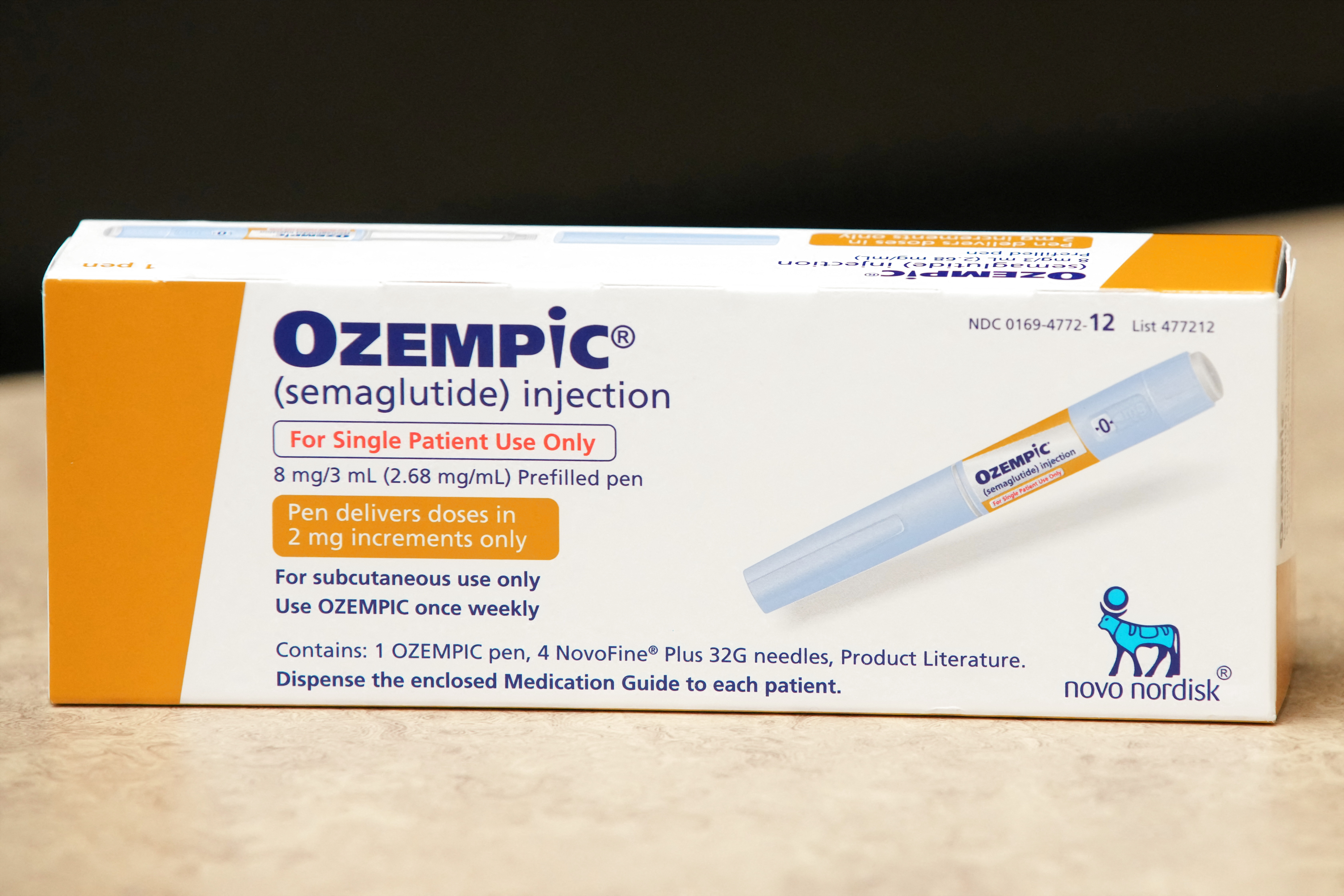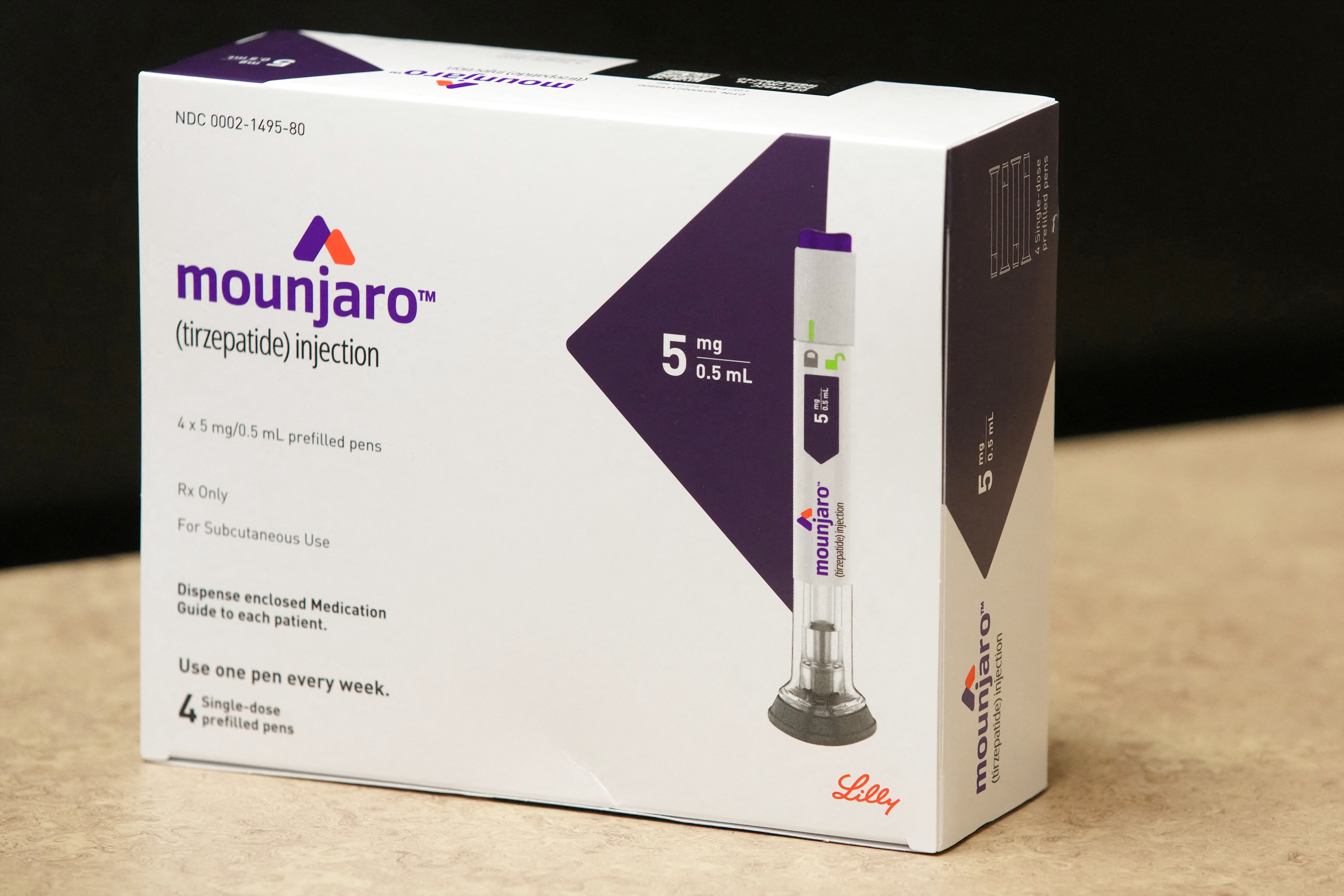
views
The pharmaceutical industry is bracing for a new era of weight loss treatment, as drugs, initially intended for Diabetes treatment, get revamped for people trying to shed their body fat percentage.
Now, focus is on a ‘new’ drug Mounjaro, made by US firm Eli Lilly & Co, which, over a nearly 17-month trial period, assisted a typical obese person weighing 104 kg in losing up to 22 kg.
The Wall Street Journal reported that ‘no anti-obesity medication has ever produced such an impact in such a safe way.’ It is widely assumed that it will be approved by US health regulators to be prescribed for weight loss and maintenance in the coming months, and some patients are currently using it for that purpose without approval, the report said.
Mounjaro is already on the market to treat Type 2 diabetes.
But let’s take a look at all the weight loss drugs currently in news, and what the difference between them is:
The medications Ozempic, Wegovy, and Mounjaro can all be used to treat type 2 diabetes. But they have made headlines recently, particularly for the controversy surrounding their usage for weight loss by celebrities.
First, Let’s Talk About Ozempic
The hashtag #Ozempic has been viewed over 273 million times on TikTok, a report by New York Times in November 2022 said, with users expressing surprise at their alleged medication-induced weight loss and swapping stories about side effects.
According to Healthline, Ozempic is a prescription medication that is used to control blood sugar levels in persons with type 2 diabetes, with diet and exercise modifications. It helps reduce certain risks in persons with heart disease and diabetes such as heart attacks and stroke.
Semaglutide is the active component in Ozempic. It belongs to a class of medications known as glucagon-like peptide-1 receptor agonists (GLP-1 RAs). Semaglutide is exclusively available under the brand name Ozempic. There is no generic version available, says the report.
Meant for Diabetes, How Does Ozempic Help us Lose Weight?

Semaglutide, the active element in Ozempic, operates by promoting satiety. This sensation of being pleased or “full” reduces hunger. This is why it is effective for weight loss, explains a report in the Conversation.
Semaglutide also aids in the production of insulin by the pancreas, which aids in the management of type 2 diabetes. Our bodies require insulin to transport glucose (or blood sugar) from food into cells so that it can be used as energy.
Semaglutide works by imitating the role of a natural hormone called GLP-1 (glucagon-like peptide-1) that is regularly created in response to detecting nutrients in our food. GLP-1 is a signalling molecule that notifies your body you’ve eaten and prepares it to use the energy from your diet, the report says.
According to the Wall Street Journal, there are currently no approved studies to assess the percentage of weight loss through Ozempic.
What are the Side Effects of This Drug?
Healthline reports that there are serious as well as mild side effects associated with Ozempic.
Mild Side effects:
- change in the way things taste
- abdominal (belly) pain
- burping
- constipation or diarrhea
- dizziness
- headache
- flatulence (gas)
- fatigue (lack of energy)
- indigestion (upset stomach) or acid reflux
- injection-site reactions, such as skin redness, discoloration, or discomfort
- nausea or vomiting
- minor increase in heart rate
Serious Side Effects
- diabetic retinopathy (damaged blood vessels in the eye)
- gallbladder disease, including gallstones or cholecystitis (gallbladder pain and swelling)
- kidney problems
- pancreatitis (swelling of the pancreas)
- increased risk of thyroid cancer
- allergic reaction
- hypoglycemia (low blood sugar)
Now, Let’s Talk About Wegovy
Wegovy is an approved weight loss drug in the US, and is used in conjunction with exercise and a low-calorie diet to achieve long-term weight loss in:
- Persons aged 30 and up with a BMI of 30 or higher (obesity)
- Persons with a BMI of 27 or higher (considered overweight) and a weight-related health condition
- Youngsters aged 12 and up with a BMI in the 95th percentile or higher (which is considered obesity)
How Does Wegovy Work?
Wegovy is a human glucagon-like peptide-1 (GLP-1) receptor agonist (GLP-1 analogue) that replicates the activity of GLP-1 produced naturally by the gut, pancreas, and brain system, says a Drugs report.
GLP-1 affects brain locations that help to regulate hunger, particularly after eating. It also decreases the rate at which the stomach empties, making you feel fuller for longer. Also, Wegovy increases insulin synthesis.
Mild Side Effects
According to Healthline, these are some of the mild side effects:
- bloating or pain in the belly area
- burping
- diarrhea
- dizziness
- gas
- headache
- indigestion, heartburn, or gastroesophageal reflux disease (GERD)
- fatigue (low energy)
- stomach flu
- vomiting
- constipation
- nausea
Serious Side Effects
- gallbladder problems, including gallstones or gallbladder inflammation (swelling and damage)
- increased heart rate
- low blood sugar
- pancreatitis (swelling and damage in your pancreas)
- boxed warning: risk of thyroid cancer*
- allergic reaction
According to the Wall Street Journal, Wegovy was documented to have produced a weight loss of 17% vs the 22.%% of Mounjaro in 17 months.
On That Note, Looking at Mounjaro
Following FDA approval last year, Eli Lilly’s diabetic medication Mounjaro has been a runaway success. Following promising weight loss statistics in an obesity trial, demand for Mounjaro skyrocketed, according to a report by Fierce Pharma.
Supply difficulties for Novo Nordisk’s competitor diabetic and weight reduction medications, Ozempic and Wegovy, as well as a social media craze for these drugs, increased interest in Mounjaro even further. Both Novo medicines contain the GLP-1 agonist semaglutide, but Mounjaro has tirzepatide, a dual GIP/GLP-1 agonist. The Phase 2 tirzepatide data were made public by Lilly in October 2018 during a diabetic conference in Berlin.
How Does Tirzepatide Work?
As per a report by Goodrx Health, Tirzepatide is unique in that it is the first medication to combine two kinds of medications: a GLP-1 receptor agonist and a glucose-dependent insulinotropic polypeptide (GIP) receptor agonist. As a result, tirzepatide is classified as a dual GLP-1/GIP receptor agonist.
Both GLP-1 and GIP are incretin hormones, which are hormones released after eating. Tirzepatide mimics the effects of several drugs. This involves instructing the pancreas to release insulin after eating and instructing the liver to reduce the amount of glucose it produces. These effects aid in feeling full, slowing digestion, and lowering blood sugar.
Side Effects?
According to the report, common side effects include:
- Nausea
- Vomiting
- Diarrhea
- Loss of appetite
- Stomach pain
- Constipation
- Upset stomach
Which Will Win?
Experts have described Mounjaro as the ‘King Kong’ of weight loss drugs due to the component Tirzepatide in it. Julio Rosenstock, a veteran diabetes doctor, was quoted by Wall Street Journal as saying that he had nicknamed Ozempic, the drug from Lilly’s rival Novo Nordisk, the “gorilla” because it had been the most potent GLP-1 containing drug to that point, but that tirzepatide is really a King Kong.”

Meanwhile, a report by CNBC has said that people who use the breakthrough obesity treatments Ozempic or Wegovy will gain weight if they stop taking the pills.
Karin Conde-Knape, Novo Nordisk’s senior vice president of global drug discovery said it was similar to when people go on diets or different exercise regimens, similar to when they go on a pharmacological treatment.
“As long as you’re keeping your intake the same, your output the same, you’re able to control your weight. But if you go out of this, you will immediately start to come back,” she was quoted as saying by CNBC.
Conde-Knape stated that the rate of weight gain after stopping Wegovy varies by individual, adding that “some will come back sooner, some will come later.” Both prescription medications are manufactured by Novo Nordisk.
Read all the Latest Explainers here



















Comments
0 comment